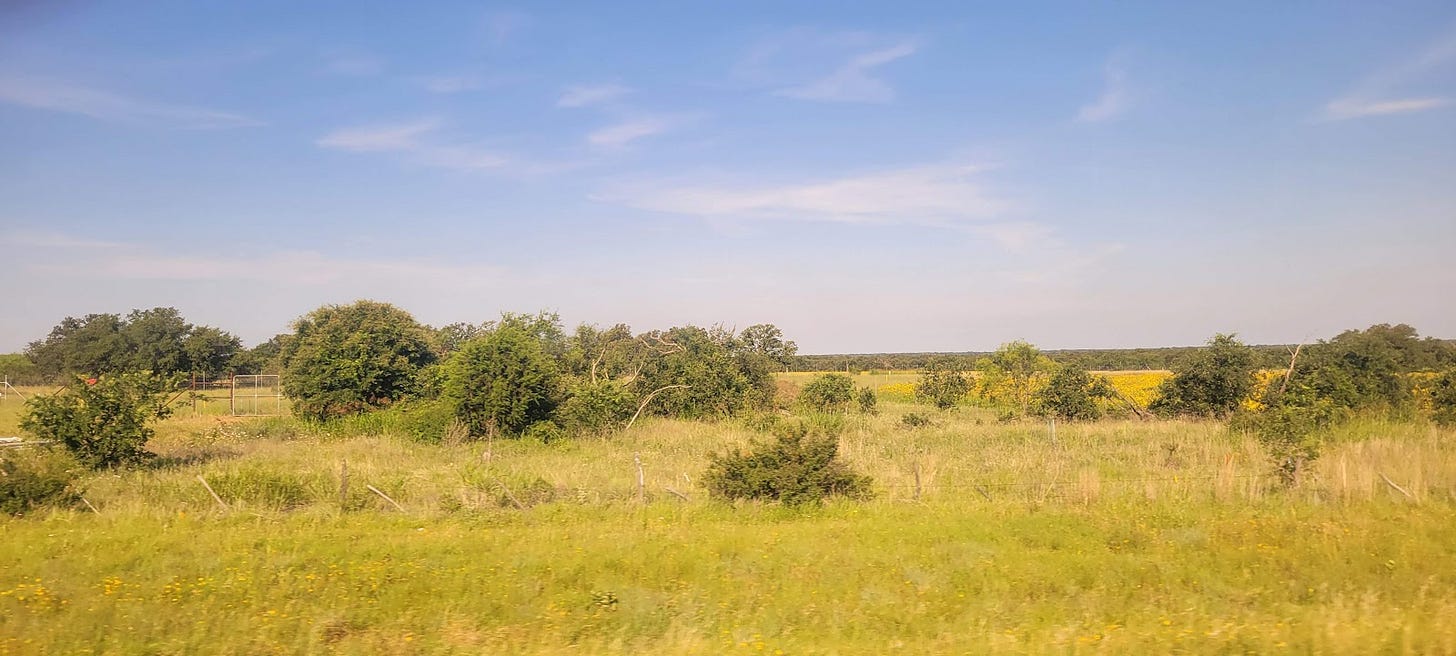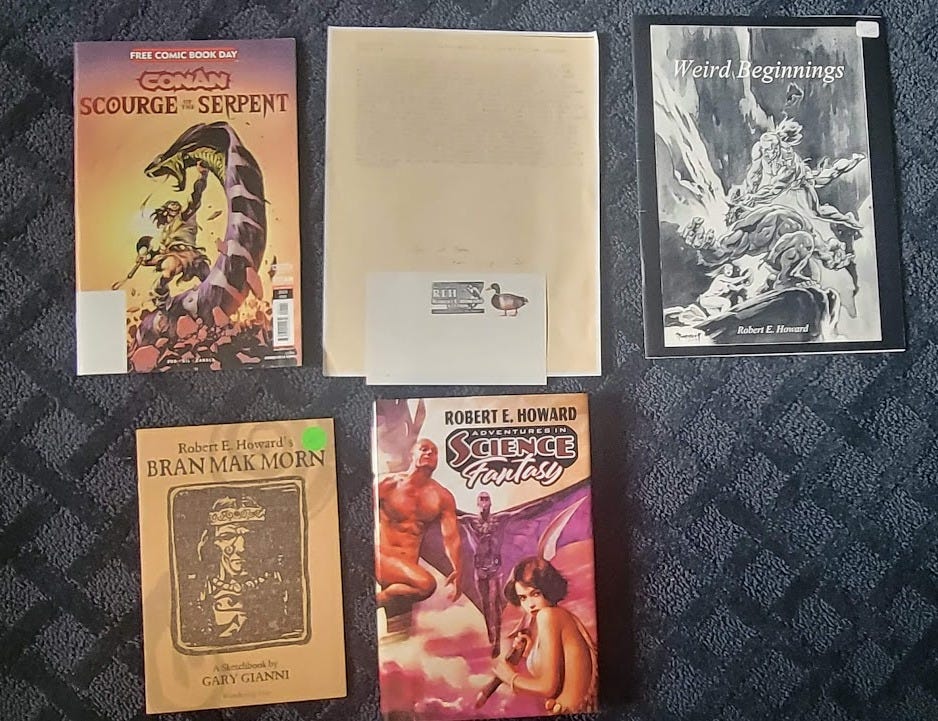Howard Days 2025 Travel Log
Secnhas Claideb's Trip to Where Heroic Fantasy All Began
Last week I made it down to Cross Plains, Texas for the two most important days of the year in the fandom of Robert E. Howard and his works. Many today know him as creator of Conan the Cimmerian (more popularly given the moniker “the Barbarian”), but Robert E. Howard Days helps reveal more about who the man spinning the yarns of worlds and ages of undreamed of really was.
I regrettably missed Howard Days 2024 due to conflicts with my former job and so resolved to not miss this year’s celebration of Robert E. Howard’s life and work. 2025’s theme centered around his professional work as this marked the centennial of his first professional sale—his caveman yarn, “Spear and Fang,” appeared in the pages of Weird Tales’ July 1925 issue when he was just 18 years old. The guest of honor this year was Mark Wheatley, the current illustrator for the covers of the Robert E. Howard Press Foundations new collections of Howard’s stories and other writings. One of the highlights, however, was the absolute number of new attendees that had come from miles around to experience these two special days.
Every year, or at least every time, I engage with the writings or biographies of my favorite weird authors like Howard or Lovecraft I always learn something new and this year was no exception. I especially got to learn more about Howard right around the time of his death thanks to the panels and scholars in attendance at the event. One of the major discussion panels centered on Howard’s professional and personal life in 1935, which was “The beginning of the end” as put by Bobby Derie. Robert E. Howard had worked incredibly hard since getting his foot in the door 10 years prior with “Spear and Fang,” but his obligation to take care of his ailing mother, the looming threat of the Great Depression, and the stigma of the locals in Cross Plains towards his choice of occupation compounded into a perfect storm that sent him down a gloomy road. Although he made more than a living wage on paper with his story sales, Weird Tales struggled to make good on their payments after the bank they gathered their capital from shut down in the Depression. All he needed was what he had been owed in order to get more medicine for his mother and pay off other debts, but Farnsworth Wright (the editor of Weird Tales at the time) simply couldn’t provide. The biggest takeaway I had from that panel was Howard’s ultimate decision to rely on writing as his main source of income. Throughout his life, he expressed disdain for traditional work and by 1935, it was determined he would never consider a job other than writing. The people of Cross Plains back then simply could not understand Howard’s choice to pursue writing rather than manual labor or what they would have perceived as more “conventional” work that contributed to their community and society as a whole. It is ironic that nowadays the memory of their town is largely held up in no small part thanks to Howard’s yarns.
I also got to explore the surrounding towns of Cross Cut and Burkett on the bus tour led by
. Although I had been on similar tours in my previous years of attending Howard Days, I still found it inspiring to see the environs Bob once roamed and likely pulled his stories out of. The landscape seemed especially lush and teeming with hidden life after rain showers from the days prior. Even if the main programming is centered around Cross Plains and the Howard house, I still feel it is important to take some time to explore the surrounding areas and towns to really take in all that made up Howard’s immediate world which in turn influenced the ones he wrought.I partook in some of the other regularly scheduled activities such as looking through his original typescripts and Weird Tales magazines in the library, walking through his house (which now has his original, restored writing desk!), and reciting a Scottish Gaelic translation of his poem “Cimmeria” at the Porchlight Poetry. You can read and listen to it at the link below!
Howard Days is also a great time for collectors and bibliophiles as the vendors, library, and museum have plenty of anthologies, game books, and little literary artifacts. The silent auction that takes place alongside the Friday night banquet is especially one of the highlights, which in previous years I managed to acquire some great finds. My spoils this year were a bit small as I already have a considerable collection of Howard’s works, and other bits of writing inspired by his stories. Nonetheless, I came away from Cross Plains with a few good items to help show my support for Cross Plains and Howard Days.
Each Sunday following Howard Days when I get on the road to Dallas-Fort Worth, I always get the desire to return. Although my attendance thus far has been every other year, I’d like to commit more to being a regular, especially for next year which will mark four major anniversaries in the fandom: it will be the 20th anniversary of the Robert E. Howard Press Foundation, the 30th anniversary of the film The Whole Wide World, the 40th anniversary of Howard Days, and the 90th anniversary of Robert E. Howard’s death. There is a lot coming and if this year’s attendance was just an omen of what and who may be on the horizon, then I will want to be driving West in the summery dawn one year from now.
Thanks for reading this week’s post! Leave a like and comment your favorite part of Howard Days if you’ve been there or your favorite story by him if you haven’t!
Refer your friends to Senchas Claideb to receive access to special rewards, including a personalized Gaelic phrase and a free, original short story exclusive to top referees!
Shoot me a message!






Howard's pen-pal H.P. Lovecraft shared his disdain for "traditional work", but he wrote about it in more poetic terms.
So glad you got to experience Howard Days again this year. I can tell you really enjoy it and had a good time. Really hope you get there next year for the grand celebration!